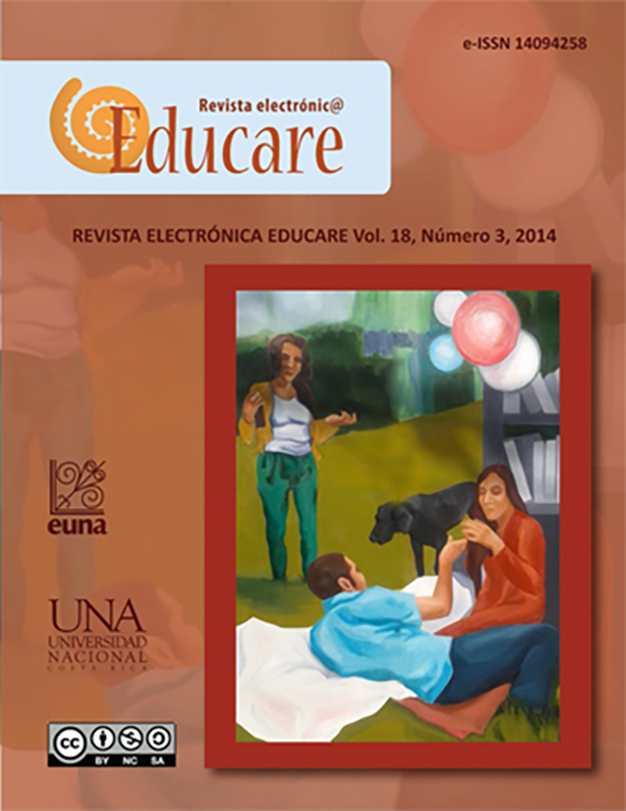Insights on the Meaning of Life in the Classroom
DOI:
https://doi.org/10.15359/ree.18-3.16Keywords:
Learning, classroom, biopedagogy, complexity, coexistence, uncertainty, language creation, purpose, transformation, life.Abstract
This article is based on the premise that coexistence in classrooms must be an emotional dynamic shared within a space of mutual respect for oneself, one another, and each other’s activities. The paper proposes that the transformation of the participants must be developed in these healthy spaces, based on a complex perspective, in which the vital and learning processes are nestled in one single process. It also strives to alert on the urgent need to recover education’s true charm, by reconsidering the concept and meaning of life, in order to savor existence from a new paradigm where people work with their intellect, their heart, and life itself, in a higher state of harmony.References
Assmann, H. (2002). Placer y ternura en la educación. Hacia una sociedad aprendiente. Madrid: Narcea Ediciones.
Castaneda, C. (2001). El lado activo del infinito. México: Punto de lectura.
Gutiérrez, F. (2006). Doctorado de la tercera cultura: En busca del sentido. San José, Costa Rica: Universidad de La Salle.
Maturana, H. (2002). Transformación en la convivencia. Santiago: Dolmen Ediciones.
Maturana, H. y Varela, F. (1998). De máquinas a seres vivos. Autopoiesis: La organización de lo vivo. Santiago: Editorial Universitaria.
Ruiz, A. (1997). Las contribuciones de Humberto Maturana a las ciencias de la complejidad y a la psicología. Santiago: Instituto de Terapia Cognitiva INTECO. Recuperado http://www.inteco.cl/articulos/005/texto_esp.htm
Sheldrake, R. (1994). El renacimiento de la naturaleza: La nueva imagen de la ciencia y de Dios. Barcelona: Paidós.
Downloads
Published
How to Cite
Issue
Section
License
1. In case the submitted paper is accepted for publication, the author(s) FREELY, COSTLESS, EXCLUSIVELY AND FOR AN INDEFINITE TERM transfer copyrights and patrimonial rights to Universidad Nacional (UNA, Costa Rica). For more details check the Originality Statement and Copyright Transfer Agreement
2. REUTILIZATION RIGHTS: UNA authorizes authors to use, for any purpose (among them selfarchiving or autoarchiving) and to publish in the Internet in any electronic site, the paper´'s final version, both approved and published (post print), as long as it is done with a non commercial purpose, does not generate derivates without previous consentment and recognizes both publisher's name and authorship.
3. The submission and possible publication of the paper in the Educare Electronic Journal is ruled by the Journal’s editorial policies, the institutional rules of Universidad Nacional and the laws of the Republic of Costa Rica. Additionally, any possible difference of opinion or future dispute shall be settled in accordance with the mechanisms of Alternative Dispute Resolution and the Costa Rican Jurisdiction.
4. In all cases, it is understood that the opinions issued are those of the authors and do not necessarily reflect the position and opinion of Educare, CIDE or Universidad Nacional, Costa Rica. It is also understood that, in the exercise of academic freedom, the authors have carried out a rogorous scientific-academic process of research, reflection and argumentation thar lays within the thematic scope of interest of the Journal.
5. The papers published by Educare Electronic Journal use a Creative Commons License:















 The articles published by Educare Electronic Journal can be shared with a Creative Commons License:
The articles published by Educare Electronic Journal can be shared with a Creative Commons License: 



